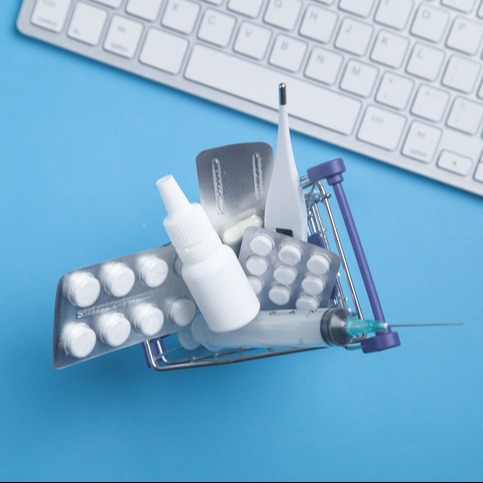
Author’s note: ‘Kaylee’ is the name I will use to represent several patients with peanut allergies. The information in this article has been altered to protect my patients’ privacy.
I remember the first time I prescribed an EpiPen Jr. for a patient with a peanut allergy.
The family of 3-year-old Kaylee found out the hard way that peanut allergies are no joke. Her parents brought her to the Barnstable County Fair to watch a show and pet the animals. On the way out, Kaylee asked for an ice cream.
Minutes later, Kaylee started coughing and said, ‘Mommy, I don’t feel good.’ Her face turned red, and she started coughing harder. Fortunately, the family was 100 yards from an ambulance parked at the edge of the fairgrounds. The emergency medical technicians (EMS) quickly recognized that Kaylee was suffering an allergic reaction (anaphylaxis) and gave her a small injection of epinephrine. Kaylee’s face turned from red to white, and her coughing subsided. EMS gave Kaylee oxygen and an asthma vapor called albuterol and transported her to Cape Cod Hospital.
It was clear that Kaylee’s allergic reaction was related to her ice cream cone. It would turn out that the ice cream contained peanut butter, which Kaylee had never tried before.
No, you do not need to buy an EpiPen
In the office a few days later, I ordered an allergy blood test for Kaylee that indicated she had a severe peanut allergy, which the family and I had suspected. By the end of the visit, I was discussing how to prevent these episodes and what to do if Kaylee should accidentally come in contact with peanuts. I mentioned that Kaylee would need an EpiPen. Because the device name includes the word ‘pen,’ Kaylee’s mother understandably thought I was recommending a pen as one would buy at a stationery store. ‘How do I know where to buy an EpiPen?’ she asked.
I explained that she did not need an EpiPen but that I would prescribe two for Kaylee: one for home use and one to always carry with her. We also talked about removing all peanut-containing foods from the home and teaching Kaylee always to ask if food contains peanuts when outside her house.
What do you need to know about the EpiPen?
An EpiPen is an emergency medical device that delivers a dose of epinephrine (adrenaline) to help counteract severe allergic reactions, also known as anaphylaxis. Anaphylaxis can cause symptoms like difficulty breathing, swelling, hives, and a drop in blood pressure, which can be life-threatening if not treated promptly. Using an EpiPen at the first sign of a severe allergic reaction can provide critical time by reducing symptoms while waiting for emergency medical help. It is crucial to familiarize yourself with the proper way to use the EpiPen and to ensure it is always easily accessible, not expired, and stored at the right temperature. When the EpiPen expires, your physician should prescribe a refill.
I stressed that 911 should always be called even if the EpiPen is appropriately administered. This advice is critical because a peanut reaction can return after the epinephrine wears off. A patient should always seek immediate medical attention after using an EpiPen, as further treatment may be necessary.
If your child has a peanut allergy
Parents of children with peanut allergies must be vigilant and well-informed to keep their children safe. First, it is critical to recognize the signs of an allergic reaction, ranging from mild symptoms like hives and itching to severe reactions such as difficulty breathing and anaphylaxis. Always have a written action plan in place, which your physician can help you prepare.
Educate your child about their allergy and teach them to avoid foods that might contain peanuts. This includes being cautious with processed foods, as peanuts can be present in unexpected places. When dining out or at social events, always inform others about your child's allergy and inquire about ingredients.
Please communicate with your child's school or daycare to ensure they know the allergy and have protocols for handling allergic reactions. Ensure your child's caregivers, teachers, and friends know how to recognize symptoms and use an EpiPen if necessary.
Finally, keep updated with your child's allergist or pediatrician for regular check-ups and advice. Empowering your child with knowledge and being prepared for emergencies are critical steps in managing a peanut allergy effectively.
Rely on PlanetDrugsDirect.com to Buy Prescription Discount EpiPen & Epipen Jr
As a trusted prescription referral service, we offer important benefits whenever you order online. Each of our partner pharmacies and/or government-approved dispensaries is committed to providing the best experience possible of any online prescription referral service on the internet. We offer:
Low prices
Quick turn-around times
Generic and brand-name medications
Unparalleled customer service
 Medically reviewed by
Medically reviewed by 





